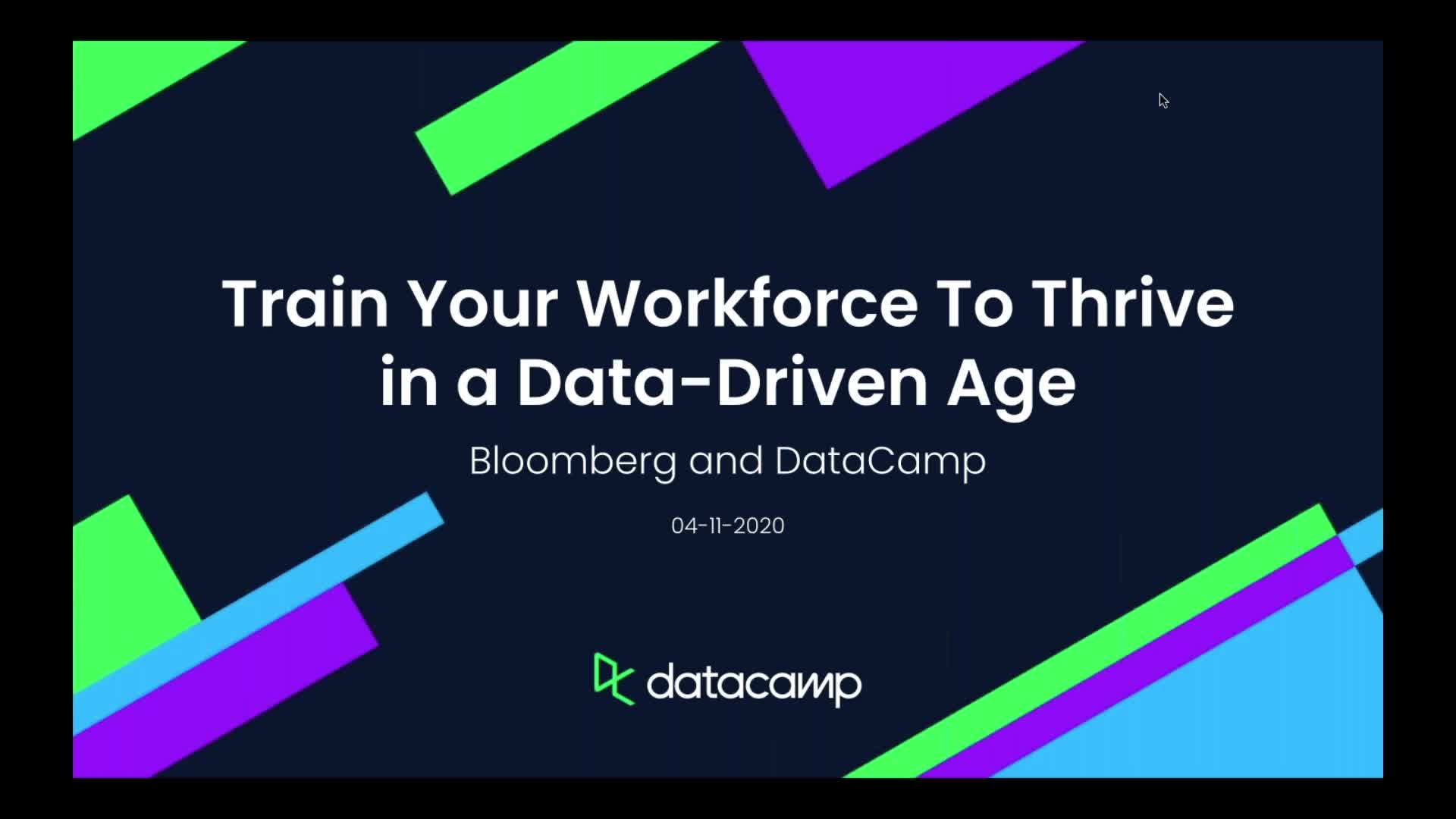Speakers


Sheil Naik
Technical Trainer at Bloomberg
Training 2 or more people?
Get your team access to the full DataCamp library, with centralized reporting, assignments, projects and moreTrain Your Workforce to Thrive in a Data-Driven Age
November 2021
Related
white paper
What Your Employees Must Learn to Work With Data in the 21st Century
These are the topics and skills that employees must know to work with data.webinar
What Your Employees Must Learn to Work With Data in the 21st Century
Here's how data can impact your employees' work and what they need to know.webinar
Data Skills to Future-Proof Your Organization
Discover how to develop data skills at scale across your organization.webinar
Success Metrics For Your Data Program
Learn how you can implement and measure a successful data-driven culture.webinar
Build Your Dream Team: Hiring Data Talent Effectively
Discover DataCamp Talent, and how it can assist you to scale your data team.webinar